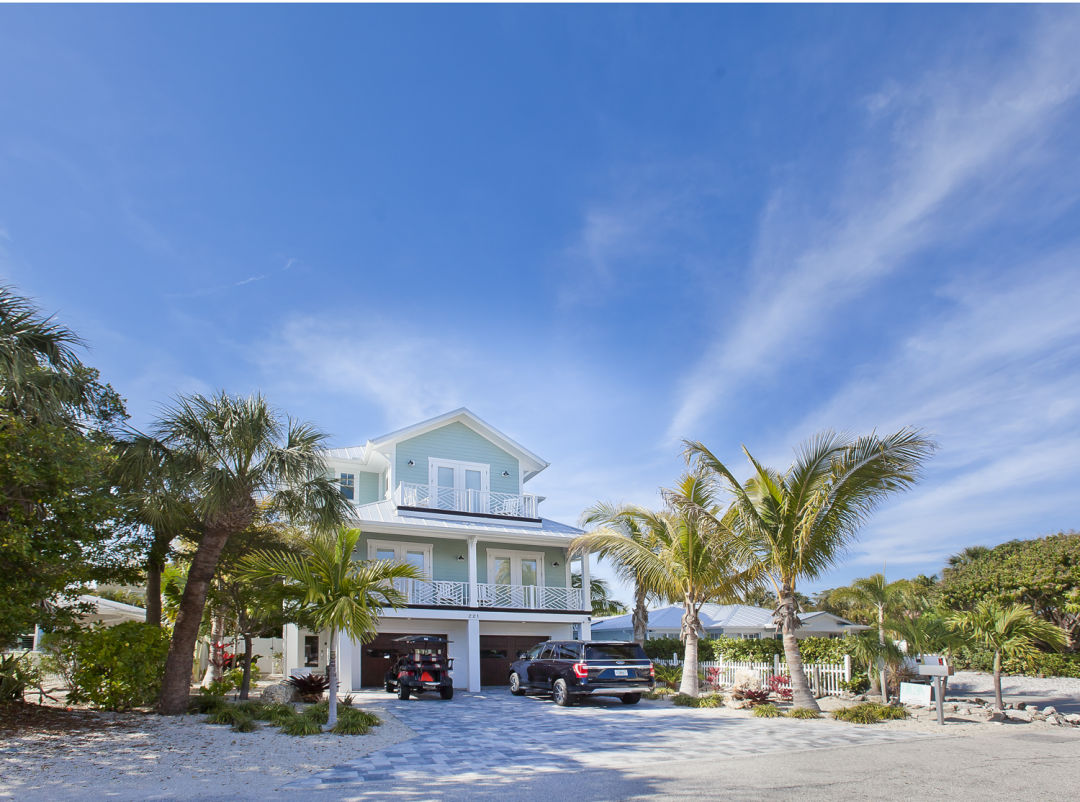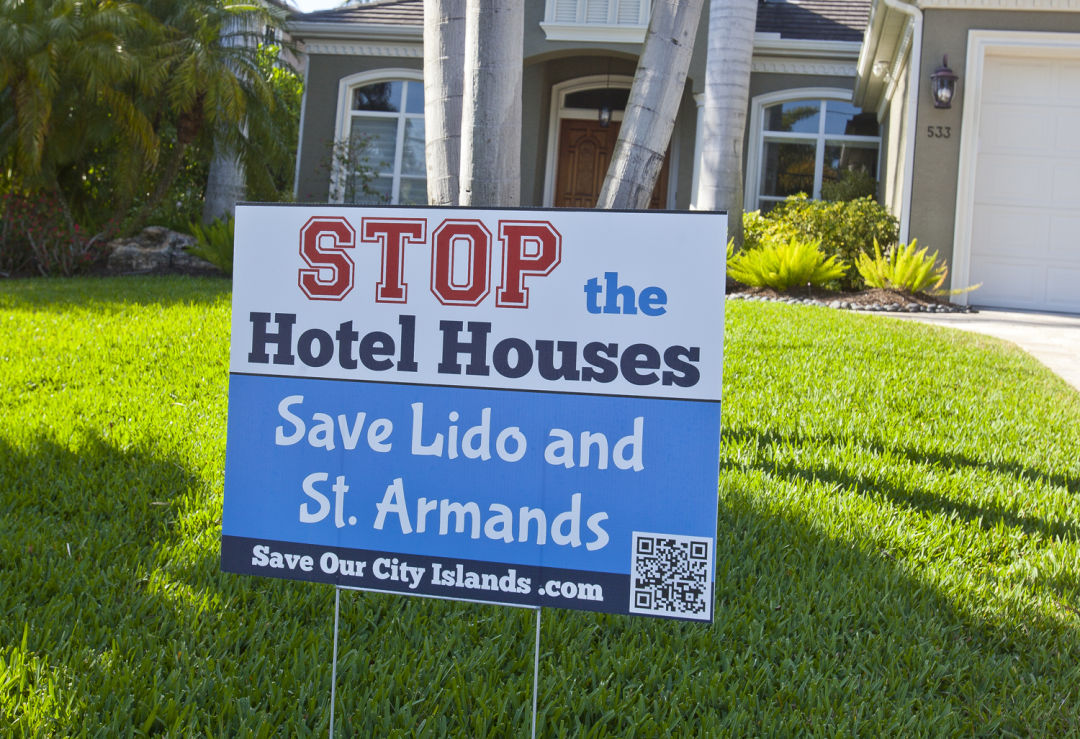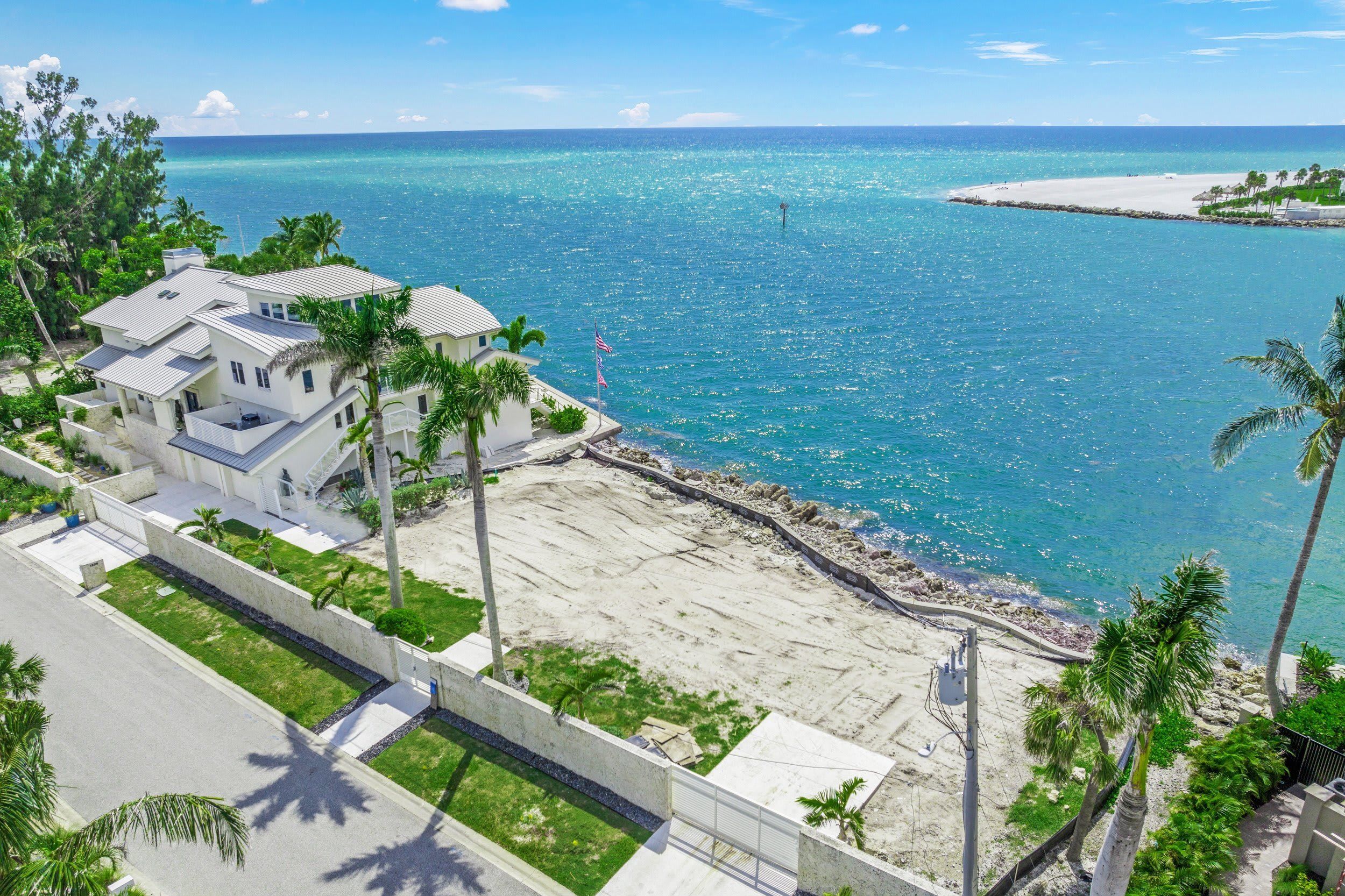Will Sarasota Crack Down on 'Hotel Houses'?

One of Lido Key Vacations' rental homes, located at 221 Grant Drive, Sarasota.
Image: Gene Pollux
If you've cruised the residential areas of St. Armands or Lido Key in recent months, you've likely noticed the yard signs. "Stop the Hotel Houses," they say. "Save Lido and St. Armands."
The signs were created by the St. Armands Residents Association and are part of a public campaign to push back against the construction of large vacation rentals in the neighborhoods on the City of Sarasota's barrier islands. That effort comes to a head next Tuesday, April 6, when the Sarasota City Commission will debate implementing new rules to regulate vacation rentals.
For years, developers and residents have battled over the vacation rental industry on Anna Maria Island, where longtime islanders bemoan the noise from houses packed with tourists, the increased congestion and the loss of community that comes when residential properties are occupied by visitors rather than families. In recent years, the industry has moved into neighborhoods on Lido Key, St. Armands Key and Siesta Key as developers buy up older homes, demolish them and replace them with tall houses that are advertised as sleeping up to 25 people.
On Lido and St. Armands, it's being led by Lido Key Vacations, a property management company affiliated with Casto, a nationwide development firm based in Columbus, Ohio, and Shawn Kaleta, who has worked for years in the vacation rental industry on Anna Maria and Siesta Key. Lido Key Vacations currently operates 11 vacation rentals on Lido, with another six in the works.

A sign created by the St. Armands Residents Association to generate support for the City of Sarasota's proposed vacation rental regulations.
Image: Gene Pollux
The city's code currently allows for short-term rentals in residential neighborhoods, as long as the renter occupies the house for at least one week. (Any rental shorter than one week is considered "transient lodging," similar to a hotel.) Most properties on Lido require at least a seven-night stay to comply with the city's rule.
At next week's meeting the City Commission will consider a new ordinance that would require the owners of vacation rentals on barrier islands to register with the city, pay an annual fee and designate two "responsible parties" or a property management company available by phone 24 hours a day to respond to complaints.
The ordinance would also cap the number of people who can occupy a rental at 10 or 12, depending on the neighborhood. (Kids under 6 years of age wouldn't count.) The number of guests not spending the night would be limited to six and would not be allowed on the property between 10 p.m. and 7 a.m. Violations could result in a suspension of the rental's registration.
The rules would not apply to condominiums or rentals where the owner lives on the property, or rentals that last 30 days or longer. Current vacation rental owners would have two years in which to "phase in" the new occupancy limits.
Chris Goglia, the president of the St. Armands Residents Association, says residents are fed up with what he calls the "hotel houses" near the beach. "We're at a tipping point," he says. He says that as more properties are converted into vacation rentals, they drive out residents whose homes will also likely become more vacation rentals, scaring off families who might want to move near the beach.
"As soon as a new property goes up for sale, nobody's going to buy it except for the people who own 20 of these things already," says Goglia. "This has to be stopped. If the City Commission chooses not to act, they would be allowing the city's near-beach neighborhoods to irreparably change to become something very different from what they have been."
Sarasota City Commissioner Jen Ahearn-Koch, who supports the new regulations, says the Lido rentals are incompatible with surrounding neighborhoods. "There are areas where commercial activity occurs because we've thought about it and planned for it and then there are areas where it shouldn't occur," says Ahearn-Koch. "These high-, high-, high-impact, high-density hotel houses are not compatible with single-family neighborhoods. They're a detriment."
Casto's vice-president for Southeast project management, John Hutchens, has drafted a memo outlining Lido Key Vacations' stance on the proposed ordinance. In it, he argues that the vacation rental business contributes to the city's economy and raises property values. He also claims that "the vast majority" of complaints about the company's rentals are "unsubstantiated."
A new registration system is acceptable, Hutchens argues, but it should be limited to ensuring compliance with the city's seven-day minimum stay rule and that the property owners are paying necessary taxes. The memo warns that the city could be at risk of being sued if it implements the new rules.
Goglia says the goal of the St. Armands Residents Association is to prevent new large-scale vacation rentals from being built and to encourage existing rentals to be converted into homes. "We hope this ordinance makes it uneconomical to build a high-residence rental property," he says.
He adds that the association is also exploring its legal options. "I believe that if the city doesn't act, the people who live here feel so strongly that this will escalate," he says. He hopes the city takes action next Tuesday. "It's now or never," he says.



